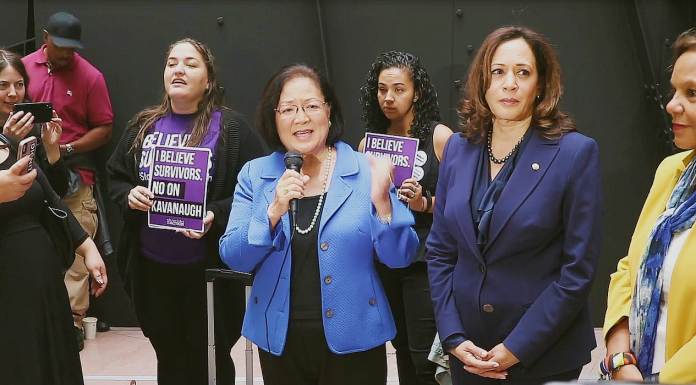Webster’s Dictionary updated its definition of the word “preference” on Tuesday to include a caveat that states the word is “offensive” to LGBT individuals when used in relation to sex.
“The term preference as used to refer to sexual orientation is widely considered offensive in its implied suggestion that a person can choose who they are sexually or romantically attracted to,” the new definition reads.
The update came just hours after Senate Democrats attacked Judge Amy Coney Barrett for using the term “sexual preference” in the context of gay marriage during her confirmation hearing before the Senate Judiciary Committee this week.
“Let me make clear, ‘sexual preference’ is an offensive and outdated term,” Sen. Mazie Hirono, D-Hawaii, told Barrett.
“It is used by the anti-LGBTQ activists to suggest that sexual orientation is a choice. It is not,” she ranted. “Sexual orientation is a key part of a person’s identity. … So if it is your view that sexual orientation is merely a ‘preference,’ as you noted, then the LGBTQ community should be rightly concerned whether you will uphold their constitutional right to marry.”
This change follows on the heels of the Associated Press’s decision to adopt Democrats’ language on the issue of court-packing.
The term was thrust into the news cycle after radical progressives suggested that Democrat presidential hopeful Joe Biden might add additional seats to the Supreme Court to offset the three conservative appointees under President Donald Trump and tip the balance to the Left.
Both Biden and running mate Kamala Harris resisted giving straight answers over their support it during recent debates, although Biden later claimed that he was “not a fan.”
But fringe progressives pushed back by trying to reframe and revise the semantics surrounding the unpopular measure.
In a story about a debate between Sen. Steve Daines, R-Mont., and Democrat Gov. Steve Bullock, the AP wrote: “Bullock said that if Coney Barrett was confirmed, he would be open to measures to depoliticize the court, including adding judges to the bench, a practice critics have dubbed packing the courts.”
But as critics pointed out, court-packing would not “depoliticize” the Supreme Court. That’s just language Democrats have adopted to make court-packing seem less menacing.
The AP edited its article after facing criticism and added a note that said, “This story has been edited to make clear that it is Bullock’s opinion, rather than a fact, that adding justices to the Supreme Court would depoliticize the court.”
Now the story reads: “Bullock said that if Coney Barrett was confirmed, he would be open to measures including adding justices to the bench, a practice critics have dubbed packing the courts.”

